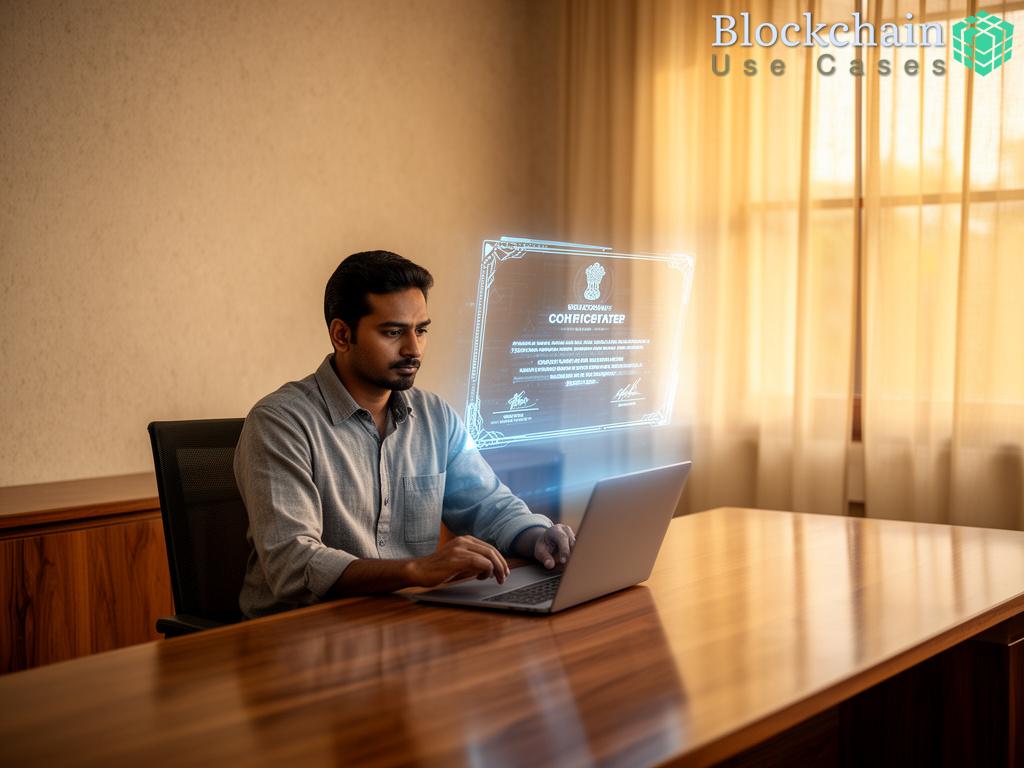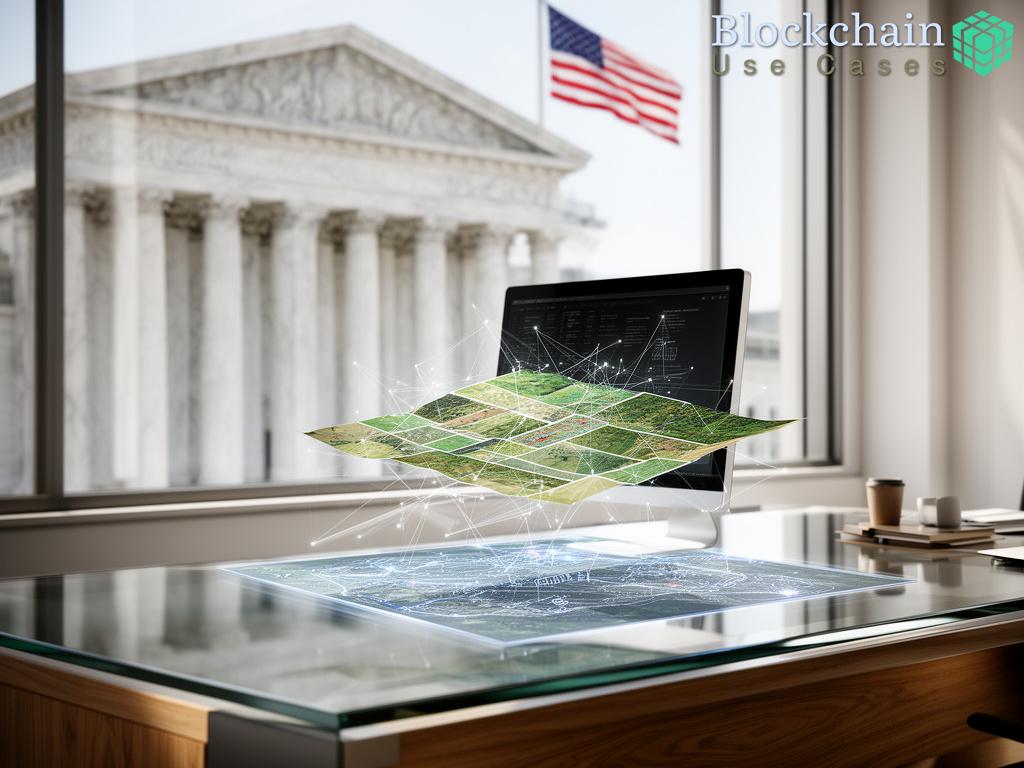Enhancing Transparency in Regulatory Compliance

Understanding the Need for Transparency
In an era where public trust in government institutions is paramount, regulatory compliance processes have come under scrutiny. Traditional methods often lack transparency, leading to inefficiencies and potential corruption. Blockchain technology emerges as a beacon of hope, offering a decentralized ledger that can enhance accountability and transparency in government operations. By providing a tamper-proof record of transactions and processes, blockchain can significantly improve the way regulatory compliance is managed.
How Blockchain Facilitates Transparency
Implementing blockchain in regulatory compliance processes can revolutionize how governments operate. The technology’s inherent characteristics—decentralization, immutability, and transparency—enable real-time tracking and reporting of compliance activities. This not only fosters trust among stakeholders but also ensures that all parties are held accountable for their actions.
- Real-Time Auditing: Blockchain allows for continuous monitoring of compliance activities, making it easier to identify and rectify discrepancies swiftly.
- Decentralized Record Keeping: With multiple copies of the same records distributed across a network, the risk of manipulation or loss of data is significantly reduced.
- Enhanced Stakeholder Engagement: The transparent nature of blockchain enables stakeholders, including citizens, to access relevant compliance information, fostering greater public participation.
Case Studies and Real-World Applications
Several governments around the world are already leveraging blockchain technology to enhance regulatory compliance. For instance, in Estonia, blockchain has been integrated into various public services, allowing citizens to verify their records without the need for intermediaries. Similarly, the United Arab Emirates has launched initiatives that utilize blockchain for real estate and business licensing, streamlining compliance processes and improving transparency.
| Country | Application | Impact |
|---|---|---|
| Estonia | Public Records Management | Increased trust and reduced fraud |
| UAE | Business Licensing | Faster processing times and lower costs |
These examples illustrate the tangible benefits of blockchain in enhancing transparency and efficiency in regulatory compliance, setting the stage for a more accountable and trustworthy governance framework.
Automating Compliance Reporting through Smart Contracts
As governments strive to modernize and enhance the efficiency of their regulatory frameworks, the integration of smart contracts within blockchain technology presents a transformative opportunity. These self-executing contracts, with the terms of agreement directly written into code, can automate compliance reporting in a way that reduces manual intervention and human error. By leveraging smart contracts, regulatory bodies can ensure that compliance is not only maintained but also reported in real-time, thereby fostering a more agile and responsive governance model.
The automation of compliance reporting through smart contracts revolutionizes the interaction between regulatory authorities and the entities they oversee. Instead of relying on periodic manual submissions of compliance documentation, smart contracts can facilitate continuous monitoring of regulatory adherence. For instance, when a business meets specific regulatory criteria, the smart contract can automatically trigger an update to the regulatory body’s database, ensuring that compliance is always accurately reflected without the delays associated with traditional reporting methods.
Moreover, the transparency offered by blockchain technology means that all stakeholders have access to the same information in real time. This democratization of data not only enhances accountability but also allows for immediate rectification of any discrepancies. The clear audit trails provided by smart contracts ensure that compliance histories are readily available, thereby reducing the risk of disputes and fostering a culture of trust among all parties involved.
Case studies from various jurisdictions illustrate the potential impact of smart contracts on compliance automation. In regions where these technologies have been piloted, regulatory agencies have reported significant reductions in the time and resources spent on compliance verification processes. Automated alerts can notify relevant parties about impending compliance deadlines or changes in regulations, ensuring that businesses remain informed and proactive in maintaining their compliance status.
As the landscape of regulatory compliance continues to evolve, the role of smart contracts within the blockchain framework is becoming increasingly critical. By streamlining compliance reporting, governments can not only enhance their operational efficiency but also build stronger relationships with the entities they regulate. The future of regulatory compliance lies in the seamless integration of blockchain technology, where smart contracts will serve as the backbone of a transparent, efficient, and accountable governance structure.
Decentralized Identity Verification for Governance
The shift towards digital governance has brought to the forefront the critical need for secure and efficient identity verification systems. Traditional methods of identity verification are often plagued by issues such as data breaches, identity theft, and cumbersome bureaucratic processes. Blockchain technology offers a solution by enabling decentralized identity verification, which not only enhances security but also streamlines regulatory compliance processes. This approach aligns with the overarching goal of improving transparency and accountability in government operations.
Transforming Identity Verification with Blockchain
Decentralized identity verification leverages blockchain’s inherent properties to create a secure and immutable record of individuals’ identities. By utilizing cryptographic techniques, blockchain allows individuals to control their personal data, sharing it selectively with authorities when necessary. This transformation shifts the paradigm from centralized databases, which are vulnerable to hacking and misuse, to a decentralized model where individuals maintain ownership of their identities. The implications for regulatory compliance are profound, as this model can significantly reduce the risk of fraud and ensure that only verified individuals engage with government services.
A Comparative Analysis of Traditional vs. Decentralized Identity Verification
Understanding the benefits of decentralized identity verification involves comparing it with traditional systems. The table below highlights the key differences:
| Feature | Traditional Identity Verification | Decentralized Identity Verification |
|---|---|---|
| Data Ownership | Centralized authorities control personal data | Individuals maintain control of their own data |
| Security | Vulnerable to data breaches and fraud | Enhanced security through cryptographic methods |
| Efficiency | Cumbersome processes requiring physical documentation | Streamlined verification with real-time data access |
| Privacy | Limited privacy; data shared widely | Privacy preserved; data shared selectively |
Embracing Decentralized Identity Solutions in Governance
As governments explore the adoption of decentralized identity verification, several pioneering initiatives are emerging globally. Countries like Sweden and Canada are testing blockchain-based identity solutions aimed at simplifying citizen interactions with public services. These initiatives demonstrate the potential for reduced administrative burdens, faster service delivery, and enhanced user experience. Moreover, the integration of decentralized identity verification into regulatory compliance frameworks can facilitate more efficient Know Your Customer (KYC) processes, enabling businesses and government agencies to verify identities swiftly while adhering to compliance regulations.
Reducing Fraud Risk in Regulatory Processes
The increasing complexity of regulatory frameworks, coupled with growing public concerns about fraud and misuse, has pushed governments to seek innovative solutions. Blockchain technology is emerging as a powerful tool in this endeavor, offering security and transparency that traditional systems struggle to provide. By leveraging the capabilities of blockchain, regulatory bodies can significantly mitigate the risk of fraud, thereby enhancing the integrity of compliance processes.
Establishing a Secure Framework for Transactions
At the heart of blockchain’s effectiveness in reducing fraud risk is its decentralized structure. Unlike conventional systems that rely on a central authority to validate transactions, blockchain allows for a consensus mechanism among multiple participants. This collective validation process ensures that each transaction is transparent and traceable, making it exceedingly difficult for fraudulent activities to go unnoticed.
Immutable Record Keeping and Audit Trails
One of the standout features of blockchain technology is its immutability. Once data is recorded on the blockchain, it cannot be altered or deleted, providing a permanent and tamper-proof audit trail. This characteristic is particularly important for regulatory compliance, as it enhances accountability and allows for thorough investigations in case of discrepancies. Regulatory agencies can easily trace back through the history of transactions to identify unauthorized changes or fraudulent behavior.
Key Advantages of Blockchain in Fraud Prevention
As governments increasingly turn to blockchain for streamlining compliance processes, several compelling advantages emerge. The following list outlines the primary benefits that contribute to reducing fraud risk:
- Transparency: All parties involved have access to the same information, ensuring that any anomalies can be quickly identified and addressed.
- Decentralization: Eliminates single points of failure, as multiple nodes validate transactions, making it harder for fraudsters to manipulate the system.
- Smart Contracts: Automated compliance checks can be programmed into transactions, ensuring that all regulatory requirements are met before any action is executed.
- Enhanced Identity Verification: The integration of decentralized identity solutions helps ensure that only verified users can access government services, further curbing fraudulent activities.
In summary, the adoption of blockchain technology in regulatory processes is not just a trend; it is a necessary evolution toward a more secure, transparent, and accountable governance model. As governments continue to explore and implement these innovative solutions, the potential for reducing fraud risk becomes increasingly evident, paving the way for a more reliable regulatory framework.
Facilitating Real-Time Audits with Blockchain Technology
In the evolving landscape of governance, the demand for transparency and accountability has never been more critical. Traditional auditing processes often rely on periodic reviews and manual checks, which can lead to delays, inaccuracies, and missed opportunities for improvement. Blockchain technology presents an innovative solution that fundamentally transforms how audits are conducted, enabling real-time oversight that is both efficient and reliable.
Real-time audits facilitated by blockchain empower regulatory bodies to monitor compliance continuously, rather than waiting for scheduled reviews. This shift allows auditors to access up-to-date information on transactions, ensuring that any discrepancies are identified and addressed swiftly. With each transaction recorded on a decentralized ledger, auditors can trace the history of compliance activities, providing an unprecedented level of detail that was previously unattainable. The immutable nature of blockchain ensures that once a transaction is recorded, it cannot be altered, creating a secure environment where the integrity of data is maintained.
The implications of real-time auditing extend beyond mere compliance checks. By harnessing the capabilities of blockchain, regulatory agencies can engage in proactive oversight, identifying potential issues before they escalate into significant problems. This capability is particularly beneficial in sectors with high regulatory demands, such as finance and healthcare. With automated alerts triggered by specific compliance milestones, agencies can remain informed about crucial deadlines and changes in regulations, ensuring that all stakeholders adhere to the required standards.
Moreover, the open and transparent nature of blockchain technology fosters a collaborative environment where stakeholders, including businesses and citizens, can participate in the auditing process. This democratization of data not only enhances accountability but also builds trust among all parties involved. In this new paradigm, real-time audits become a shared responsibility, where everyone has access to the same information, fostering a culture of compliance and integrity.





